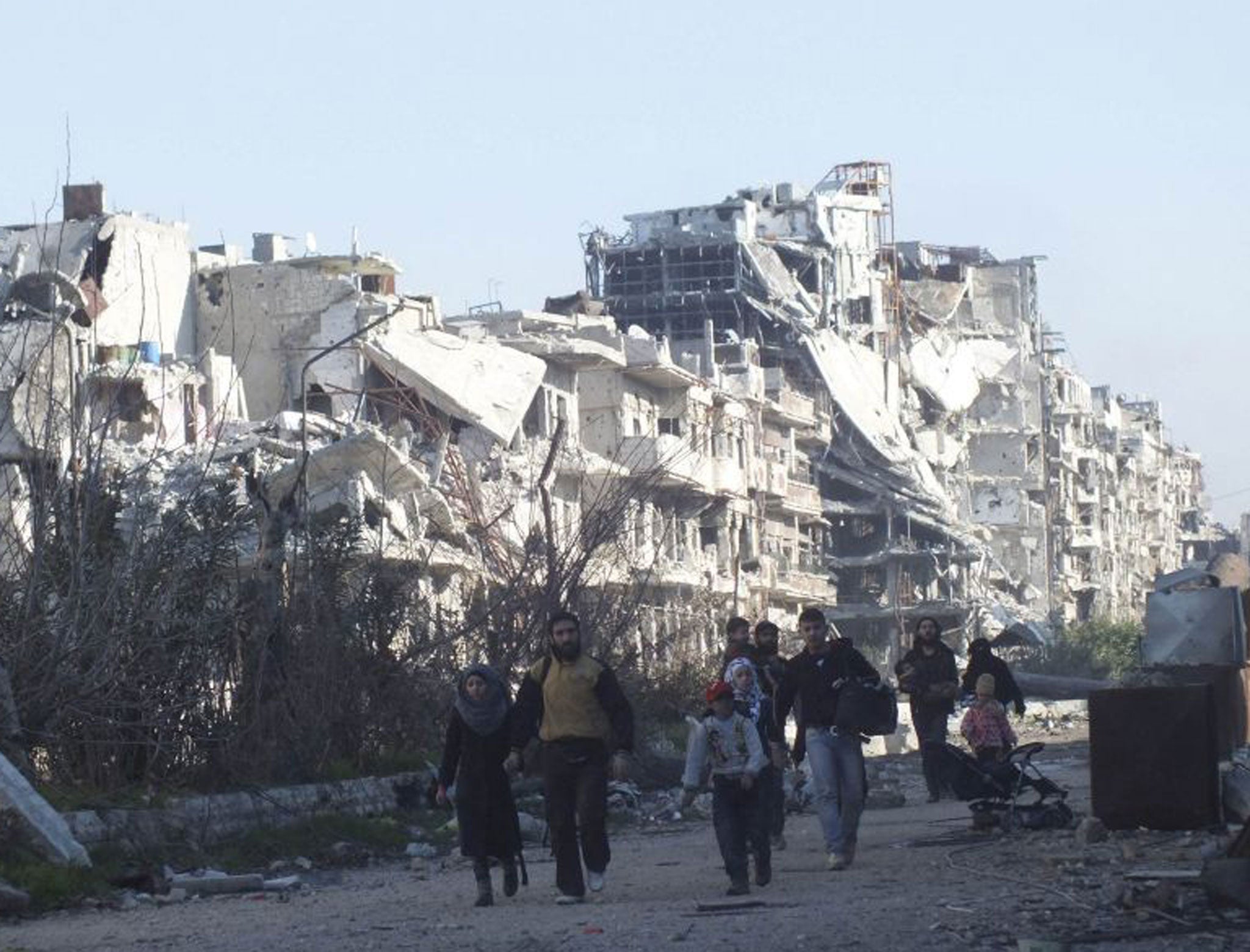Syria: The world cannot allow the regime’s policies of starvation and repression
It must be remembered that access to aid is a right, not a gift from Assad's regime

In Homs, Syria’s third-largest city, a population is being starved and bombed into surrender. It is happening in full view of the world.
The people of this ancient city have been besieged for more than 600 days. The regime has attacked them indiscriminately, using crude barrel bombs and artillery fire. People are desperate for basic necessities. According to Unicef, more than 1,000 children are still trapped in the Old City. Hundreds of thousands of residents have been displaced. There is a similar picture in Aleppo and other besieged areas.
This is the reality of the conflict in Syria. In the 21st century, starvation and hunger are being used as weapons of war. A regime that claims to be fighting terrorism is terrorising its own people. The Office of the UN High Commissioner for Human Rights says that these are crimes against humanity.
The situation in Syria has become shockingly familiar. The numbers shame us all. There are 9.3 million people in desperate need inside Syria. Nationwide, 242,000 people are under siege, the vast majority held hostage by the regime. Around 100,000 people are trapped in and around Yarmouk Camp in the suburbs of Damascus, at severe risk of starvation. There are more than two million refugees in neighbouring countries, including a staggering one million children, whose education and security have been stolen.
Some aid has now got into Homs, during a three-day ceasefire over the weekend. But it is a fraction of what is required. The regime had insisted that women, children and the elderly leave the city before the aid convoys get in. While any access for humanitarian relief is welcome, we should all be gravely concerned about the plight of those who have left the city and those who remain in Homs. Will the evacuees be protected, or will they be persecuted by the regime? Will those who remain be treated as fair game for even more devastating attacks by Assad’s security forces? The lessons of Srebrenica should haunt us all, when the deliberate separating out of women and children preceded the massacre of 8,000 men and boys.
We will soon mark the third anniversary of the Syria conflict, with no end in sight. If Assad continues to cling to power, the violence and suffering will only increase. The terrorism his brutality fuels will claim thousands more lives and increasingly threaten our own shores. We cannot stand and watch this humanitarian tragedy deepen.
First, we must not give up on the search for a political solution, which is ultimately the only way of returning peace to Syria. The “Geneva II” process has resumed this week, and the regime should join the opposition Syrian National Coalition in committing itself to a political transition.
But people in need inside Syria cannot wait while the wheels of diplomacy turn. So second, we must all continue to support the UN-led humanitarian relief effort. The UK has now committed £600m – our biggest-ever contribution to a single crisis, and we have set up a scheme to help some of the most vulnerable Syrian refugees find sanctuary in Britain. We will continue to lead the way. But other countries must increase their contributions, to help save the lives of countless desperate Syrians, and help neighbouring countries bear the burden.
Third, we must explore options for getting much more aid directly across Syria’s borders and conflict lines to all those who need it. It is unacceptable that the regime in Damascus is able to obstruct such desperately needed assistance. Access to aid is a right, not a gift from the regime, and the world cannot be party to their policy of starvation and repression.
Fourth, the United Nations Security Council must now act. It should set out clear demands of the regime and insist that they be implemented. Assad has largely ignored the Security Council’s demands so far. It is time to turn up the heat. The Security Council should require full and unimpeded humanitarian access, including to those areas being besieged by the regime. It should demand an immediate end to the use of starvation as a weapon of war, and to impunity for violations of international humanitarian law and human rights abuses. And it should call for the regime to stop using barrel bombs and other kinds of weaponry against innocent civilians.
There can be no justification for any country standing in the way of a new Security Council Resolution that insists on innocent civilians getting access to food and medical aid. The Council has often been divided on the issue of Syria. But now is the moment for all 15 members to come together behind a resolution to improve the appalling humanitarian situation. That is what the UK is proposing, and I call on other members of the Security Council to back this effort. Nothing would do more to support the work to find a political solution to the conflict than practical progress to improve the lives of the Syrian people. It is time for the Security Council to act, and to act unanimously.
William Hague is British Foreign Secretary and a former Leader of the Conservative Party.

Join our commenting forum
Join thought-provoking conversations, follow other Independent readers and see their replies